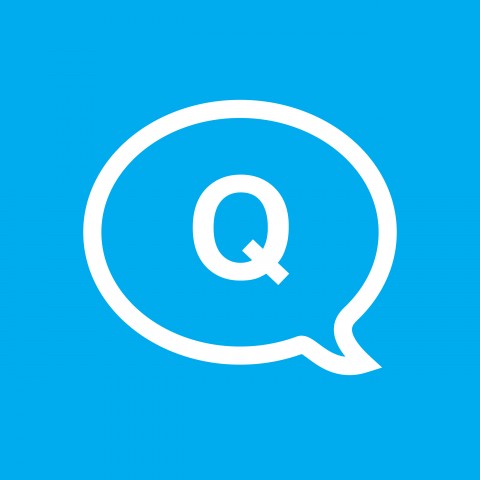
As a language-learner, it’s important to ask yourself: “Why am I even learning this language?”
Many people learn a new language to interact with people from a different cultural background, in hopes of having a meaningful conversation. And questions are a fantastic tool for learning more about someone and their culture!
“Question” in Chinese is 问题 (wèn tí). Remember that you should never be afraid to ask a 问题 (wèn tí), even if you can’t ask it perfectly. Not being able to speak your mother tongue may be tough, but as long as you try your best to keep a conversation flowing with genuine questions and a smile on your face, most people will be friendly enough to lend you their ears and open their hearts to talk with you.
All in all, being able to ask questions is a huge help when you run out of words. It gives others the opportunity to talk about themselves, and it shows them that you’re curious and want to know more about them.
In this article, we’ll be providing you with the most essential phrases for daily life and up-to-date ways of both asking and answering questions in Chinese. By the time you’re done reading, you’ll be on your way to becoming a professional conversation-starter!
Without further ado, our list of the most common Chinese questions and answers.
 Table of Contents
Table of Contents
- What’s your name?
- Where are you from?
- Do you speak Chinese?
- How long have you been studying Chinese?
- Have you been to China?
- How is ___?
- Do you like [the country’s] food?
- What are you doing?
- What’s wrong?
- How much is it?
- Conclusion
1. What’s your name?

There are two ways to form this question. The first one is the general way of speaking, and the second one is more polite and appropriate when speaking to an elder. In China, significant respect should be shown in your conversations with elders.
Question #1
In Chinese: 你叫什么名字?
Pinyin: Nǐ jiào shén me míng zi?
In English: “What is your name called?”
Additional Notes: Sometimes, people shorten it to 你叫什么 (Nǐ jiào shén me), meaning “What are you called?”
Question #2
In Chinese: 怎么称呼您?
Pinyin: Zěn me chēng hū nín?
In English: “How should I address you?”
Answer Pattern #1
In Chinese: 我的名字是[杰克]。
Pinyin: Wǒ de míng zì shì [Jié kè].
In English: “My name is [Jack].”
Answer Pattern #2
In Chinese: 我叫[贝拉]。
Pinyin: Wǒ jiào [Bèi lā].
In English: “I am called [Bella].”
2. Where are you from?

Wherever your hometown is, we are all from the same big Earth!
The Question
In Chinese: 你从哪里来?
Pinyin: Nǐ cóng nǎ lǐ lái?
In English: “Where are you from?”
Answer Pattern #1
In Chinese: 我来自[北京]。
Pinyin: Wǒ lái zì [Běi jīng].
In English: “I come from China.”
Answer Pattern #2
In Chinese: 我从[上海]来。
Pinyin: Wǒ cóng [Shàng hǎi] lái.
In English: “I am from [Shanghai].”
Answer Pattern #3
In Chinese: 我是[加州人]。
Pinyin: Wǒ shì [Jiā zhōu rén].
In English: “I am a [Californian].”
3. Do you speak Chinese?

Most people enjoy answering questions because almost everyone enjoys expressing themselves!
The Question:
In Chinese: 你会说[中文]吗?
Pinyin: Nǐ huì shuō [Zhōng wén] ma?
In English: “Do you speak [Chinese]?”
Typical Answer #1
In Chinese: 我会说一点。
Pinyin: Wǒ huì shuō yī diǎn.
In English: “I can speak a little bit.”
Typical Answer #2
In Chinese: 我的中文说得还不错。
Pinyin: Wǒ de Zhōng wén shuō de bú cuò.
In English: “I can speak Chinese pretty well.”
Typical Answer #3
In Chinese: 我不怎么会说。
Pinyin: Wǒ bù zěn me huì shuō.
In English: “I can barely speak it.”
4. How long have you been studying Chinese?

To master something truly requires you to pour your heart into it.
The Question
In Chinese: 你学习[中文]有多久了?
Pinyin: Nǐ xué xí [Zhōng wén] yǒu duō jiǔ le?
In English: “How long have you been studying [Chinese]?”
The Typical Answer Pattern
In Chinese: 学了有[三](个)月 / 年 / 周 / 天了。
Pinyin: Xué le yǒu [sān] (gè) yuè / nián / zhōu / tiān le.
In English: “It’s been [three] months / years / weeks / days.”
Additional Notes: 个 (gè) is a quantifier for “months” in this case. Without it, the sentence would sound weird in Chinese. There’s an abundance of quantifiers that play a huge role in the Chinese language.
The Typical Answer
In Chinese: 我刚刚开始学习。
Pinyin: Wǒ gāng gāng kāi shǐ xué xí.
In English: “I just got started.”

5. Have you been to China?
The Question
In Chinese: 你去过[中国]吗?
Pinyin: Nǐ qù guò [Zhōng guó] ma?
In English: “Have you been to [China]?”
Typical Answer #1
In Chinese: 我去[中国]旅游过。
Pinyin: Wǒ qù [Zhōng guó] lǚ yóu guò.
In English: “I went to [China] on a trip.”
Typical Answer #2
In Chinese: 我曾在[美国]留过学。
Pinyin: Wǒ céng zài [Měi guó] liú guò xué.
In English: “I once studied in [the United States] for a while.”
Typical Answer #3
In Chinese: 我在那里呆过一阵。
Pinyin: Wǒ zài nà lǐ dāi guò yī zhèn.
In English: “I visited there for a while.”
6. How is ___?

If you enjoy something, you’d better give it a big thumbs-up!
You can create several simple Chinese questions and answers using the patterns below. Learning this versatile phrase is a good idea!
The Question
In Chinese: [中国]怎么样?
Pinyin: [Zhōng guó] zěn me yàng?
In English: “How is [China]?”
Typical Answer #1
In Chinese: 特别好。
Pinyin: Tè bié hǎo.
In English: “Very good.”
Typical Answer #2
In Chinese: 还不错。
Pinyin: Hái bú cuò.
In English: “Not bad.”
Typical Answer #3
In Chinese: 不怎么样。
Pinyin: Bù zěn me yàng.
In English: “Not that great.”
7. Do you like [the country’s] food?
The Question
In Chinese: 你喜欢[中国]菜吗?
Pinyin: Nǐ xǐ huān [Zhōng guó] cài ma?
In English: “Do you like [Chinese] food?”
Typical Answer #1
In Chinese: 我特别爱吃[中国]菜。
Pinyin: Wǒ tè bié ài chī [Zhōng guó] cài.
In English: “I love [Chinese] food very much.”
Typical Answer #2
In Chinese: 我不是很喜欢[中国]菜。
Pinyin: Wǒ bú shì hěn xǐ huān [Zhōng guó] cài.
In English: “I don’t enjoy [Chinese] food all that much.”
Typical Answer #3
In Chinese: 还好。
Pinyin: Hái hǎo.
In English: “It’s not bad.”
8. What are you doing?
These basic questions and answers in Chinese can be very useful, especially if you’ve made a new friend and want to know what they’re up to.
Question #1
In Chinese: 你在干嘛呢?
Pinyin: Nǐ zài gàn ma ne?
In English: “What are you doing?”
Question #2
In Chinese: 你在忙些什么呢?
Pinyin: Nǐ zài máng xiē shén me ne?
In English: “What are you busy with?”
The Typical Answer Pattern
In Chinese: 我(最近)在(忙)……
Pinyin: Wǒ (zuì jìn) zài (máng) …
In English: “(Recently,) I am (busy with)…”
Additional Notes: The words in parentheses can be omitted depending on the situation.
9. What’s wrong?

Do you wonder what’s wrong with this adorable kid? Learn how to ask in Chinese!
The Question
In Chinese: 有什么不对吗?
Pinyin: Yǒu shén me bú duì ma?
In English: “What’s wrong?”
Typical Answer #1
In Chinese: 没什么大不了的。
Pinyin: Méi shén me dà bù liǎo de.
In English: “Nothing important.”
Typical Answer #2
In Chinese: 我心情不太好。
Pinyin: Wǒ xīn qíng bú tài hǎo.
In English: “I am not in a good mood.”
10. How much is it?

Always think twice: is the stuff you’re going to buy worth it?
The Question
In Chinese: 这个多少钱?
Pinyin: Zhè gè duō shǎo qián?
In English: “How much is it?”
In Chinese: 这个怎么卖?
Pinyin: Zhè gè zěn me mài?
In English: “How do you sell this?”
The Typical Answer
In Chinese: 三十五元一个。
Pinyin: Sān shí wǔ yuán yī gè.
In English: “35 yuan each.”
Additional Notes: The answer to this question is usually the direct number of the cost.
11. Conclusion
After studying these useful formulas and sets of Chinese questions and answers, you must be starting to get the hang of both asking and answering questions in Chinese. Of course, there’s no fixed recipe for any language as it’s more of an expressive artform. Try to customize your own answers based on the sentence structures we provided you. We also recommend that you practice in front of the mirror.
Before you go, why not start practicing what you’ve learned today in the comments section? Write out and answer a few of the questions from this article, or let us know if there are any questions and answers in Chinese you still want to know! We look forward to hearing from you.
Devote some time and effort to practicing conversations about these topics. Effective communication not only requires proper content and decent sentence structures, but also the right facial expressions, tones, emotions, and so much more. A well-developed conversation can go so much deeper than you think!
Now, have some unshakable faith in yourself, just as much as we do: you can become a master of Chinese conversation! We have tons of free resources in Chinese for you, no matter your current level. Explore our website to make the most of your Chinese studies.
Let’s spread our wings and soar together at ChineseClass101.com, your happiest language-learning paradise!










